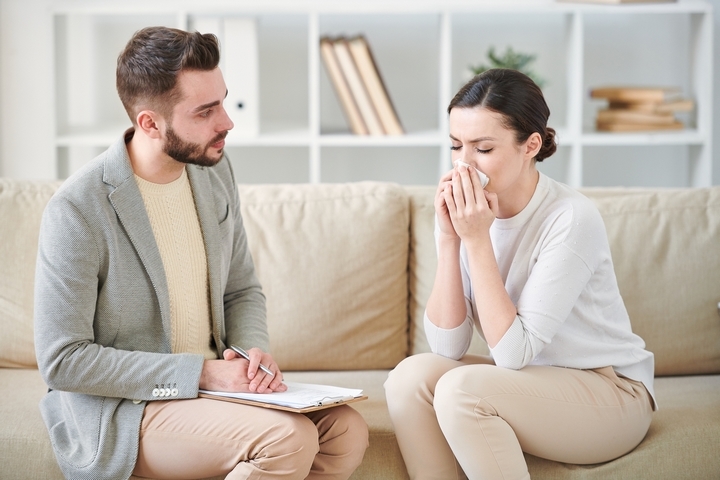
Relationship therapy acts as a strong tool that helps couples achieve better connections between them while resolving their conflicts. Artful platforms exist to help couples analyze relationship behavior together while helping them identify each other’s requirements towards creating enduring connection satisfaction. Relationship therapy allows couples to resolve their communication barriers along with unresolved issues and emotional distance. Through establishing safety within therapy sessions and using therapeutic methods relationship therapy enhances the satisfaction levels of those in relationships.
Improving Communication
Relationship therapy helps partners through its core benefit by establishing better communication capabilities. Most romantic relationships experience relationship failures because partners maintain inadequate communication or face improper exchange of information. Relationship therapy teaches couples methods to communicate more plainly and to listen attentively toward their partners. The combination of understanding verbal and non-verbal signals in therapy leads partners to discover what their loved ones actually feel and require. The establishment of open communication enables relationships to develop a supportive atmosphere that strengthens empathy levels thus establishing essential conditions for relationship satisfaction.
The practice of therapists involves particular communication methods which assist couples to effectively communicate with each other. Patients receive guidance from therapists to implement active listening that requires individuals to pay undivided attention to each other and prevent interruptions. During therapy sessions the professional teaches partnerships to employ “I” statements for expressing feelings without placing blame on their significant other. The communication techniques create less defensive behavior between partners while building open dialogue and thus improve both emotional bonds and relationship fulfillment. With improved skills partners become better able to handle serious discussions and solve disagreements through positive methods.
Addressing Underlying Issues
Relationship therapy guides couples to understand and solve components which make their partnership dissatisfying. Such problems including unresolved emotional needs, trust problems and past traumatic experiences cause substantial deterioration to relationship quality. During counselling sessions partners gain insight into their backgrounds and those shared experiences which lead to destructive relationship behaviors. Couples receive the opportunity to gain insight about the causes of their relationship issues through this therapeutic framework so they can work together toward resolving these problems.
Relationship therapy primarily employs narrative therapy as one of the essential therapeutic approaches among others. Relationship issues should be recognized as independent elements through the narrative therapeutic approach. Couples gain the ability to solve their issues when they treat the problems as outside their personal identities. The new way of looking at things enables partners to develop deeper empathy and better mutual comprehension toward each other. The method allows spouses to transform their relationship stories into healthier communications which increases satisfaction rates. Professional help enables couples to understand and treat their core problems thus developing stronger relationships.
Building Emotional Intimacy
Relationship therapy stands vital because emotional intimacy acts as a key element for relationship satisfaction. The flow of emotions naturally decreases between partners when persistent disputes together with ineffective communication create barriers in their relationship. Relationship therapy promotes partners to expose themselves emotionally to each other to develop deeper bond connections. Within therapy sessions both partners gain a safe environment to disclose their thoughts together with their emotions alongside their life experiences. The act of vulnerability enables greater familiarity and better emotional intimacy between partners.
The process of relationship therapy includes methods which assist members of a couple to express appreciation alongside affection and develop empathy between partners. Therapists guide their clients toward understanding different emotional needs between partners while helping them establish supportive methods to meet these requirements healthily. The development of emotional understanding between partners leads to effective responses toward their feelings and establishes emotional support that strengthens relationships. Relationship satisfaction grows stronger through emotional closeness because partners will develop trust together with feelings of security in addition to creating deep connections.
Reinforcing Positive Relationship Patterns
During relationship therapy both partners learn to develop strong relationship patterns through their work on dismantling bad habits and their maintenance of positive relationship dynamics. Relationship satisfaction receives substantial damage from negative behaviors which include criticizing and being defensive or withdrawing communication. These behaviors create damaging patterns in relationships. Relationship therapy helps couples understand how to fight patterns of destructive behavior through procedures which establish better interacting practices. Therapists use positive reinforcement techniques to make couples identify their strengths while keeping conflict areas in the background.
The therapist will lead couples through gratitude sessions which require them to express positive appreciation for their relationship on a regular basis. By adopting this basic yet efficient habit couples can redirect their awareness from challenges to the characteristics which unite them as a pair. Such positive reinforcement between couples leads to enhanced satisfaction within their relationships through the passing of time. Through therapy couples receive a functional approach to establish habits which strengthen their bond even during turbulent moments.
The Role of Counselling in Relationship Therapy
The process of counselling enables couples to tackle the various challenges which their relationships present. Both partners have the opportunity to share their deepest thoughts while remaining shielded from criticism or attacks in a professional setting. Relationship therapy enables people to face their personal problems along with dealing with unresolved disputes and understanding their behavioral patterns. A certified counselor assists partners to build relationship abilities that improve intimacy while boosting satisfaction in their partnership.
Therapists select multiple approaches to create therapy programs that meet the special requirements of each marriage. As a therapist the objective is to supply guidance through shaping negative narratives and teaching practical methods which reduce conflicts however providing valuable insights is also essential. Relationship therapy together with effective counselling enables partners to lead efforts which improve their relationship quality and increase overall satisfaction.
Conclusion
Through relationship therapy couples receive guidance and découvrir methods that let them build better relationship satisfaction. Therapy enables partners to create stronger bonds by improving their connection through better communication and issue resolution and deep emotional intimacy and established positive relationship behaviors. Couples benefit from counselling sessions together with narrative therapy techniques which help them build new relationship stories for addressing their relationship challenges ahead. The therapeutic experience helps individuals discover mutual understanding and compassionate feelings which produce deeper love relationships between couples.









